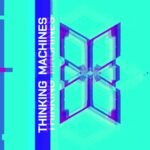
Many experts predict that 2025 will be a breakthrough year for artificial intelligence adoption across several key industries. The shakeups promise benefits but also pose transition challenges for displaced workforces.
The rapid advancement of artificial intelligence is set to disrupt numerous industries in 2025 and beyond. Companies that fail to adopt these emerging technologies run the risk of falling behind the competition.
Here are some of the AI Industry Shakeups in 2025:
Healthcare:
AI tools like diagnostic assistance programs, personalized treatment plans, and drug development algorithms will transform patient care and medical research. Technologies like surgical robots may also move into the mainstream by 2025. However, issues around privacy, bias, and regulations will need navigating.
Transportation:
Self-driving vehicles will progress toward commercial viability in 2025, provided technology costs continue falling and regulators build appropriate frameworks. Autonomous trucks are likely to see adoption sooner than robotaxis for moving people. AI will also optimize logistics like traffic routing and freight delivery.
Finance:
Banks are already rolling out AI for fraud detection, loan approvals, automated advisors, and stock trading algorithms. By 2025, these could become the industry norm. However, biases and “black box” algorithms present risks that require ethical AI safeguards.
Manufacturing:
“Lights out” factories with minimal human oversight will edge closer through autonomous supply/production coordination via AI. Predictive maintenance, quality control automation, and design improvements via AI are other manufacturing advances expected by 2025. Addressing technological unemployment poses a challenge.
Marketing:
Highly targeted and personalized digital marketing through AI analysis of consumer data and media preferences will become standard. However, consumer distrust around data privacy remains an obstacle for marketers to surmount.
Retail:
AI is transforming retail operations from inventory planning to customer experience. By 2025, most customer interactions – from online shopping to in-store – could be powered by virtual assistants, predictive analytics, and customized recommendations. Cashier-less stores like Amazon Go using computer vision and sensors will also likely spread. Data privacy and job losses are downside concerns.
Cybersecurity:
As threats grow sophisticated, the cybersecurity industry will lean more on AI for attack prevention/detection, automated responses, and data protections. Still, malicious actors may weaponize the same technology against systems. Fostering trust in AI while combatting adversarial attacks is crucial.
Media:
AI algorithms are getting adept at creating synthetic media like automated text, videos, and audio. By 2025, AI could widely displace repetitive manual work. But managing risks around misinformation and fakes requires a balanced approach between ethics and creativity.
Law:
Automating aspects of legal research, document analysis/generation, and predictive analytics will allow law firms to conduct cases faster at lower costs. AI assistants may work alongside human lawyers. But biased data and judgments as well as attorney displacements present regulatory challenges.
Oil/Gas:
Finding new wells/deposits through geospatial analytics along with monitoring pipelines via drones and sensors will grow more AI-reliant in 2025. So will predictive modeling for demand forecasting and supply logistics optimization. Mitigating environment damages despite increased fossil fuel extraction remains vital.
Agriculture:
Agricultural robots, drone analytics, and AI-powered enterprise suites will help automate crop and livestock production. Precision farming through AI could improve yields and sustainability amid climate pressures. However, technological costs may affect widespread adoption.
Human Resources:
AI tools are automating various HR workflows like job candidate screening, onboarding, payroll etc. By 2025, AI assistants may become commonplace for everyday HR duties. But retaining human interaction and avoiding biased AI remain crucial.
Government:
Administrative tasks like processing paperwork, tracking citizen complaints, detecting fraud, optimizing traffic flows etc. are primed for an AI takeover by 2025 across local and federal governments. But technology costs and retraining civil servants present adoption hurdles.
Education:
AI applications for automated grading, adaptive learning platforms, customized teaching plans, plagiarism checking, and administration assistance will accelerate by 2025. But regulated use that focuses more on enhancing versus replacing teachers is key.
Aviation:
Auto-piloting may expand to more commercial flights allowing just one pilot mostly monitoring the cockpit by 2025. AI can also better predict flight delays, optimize routes in real-time, and fault-check aircraft through predictive maintenance.










